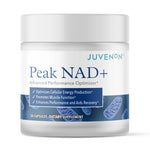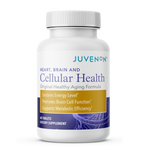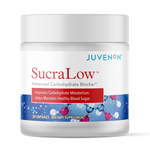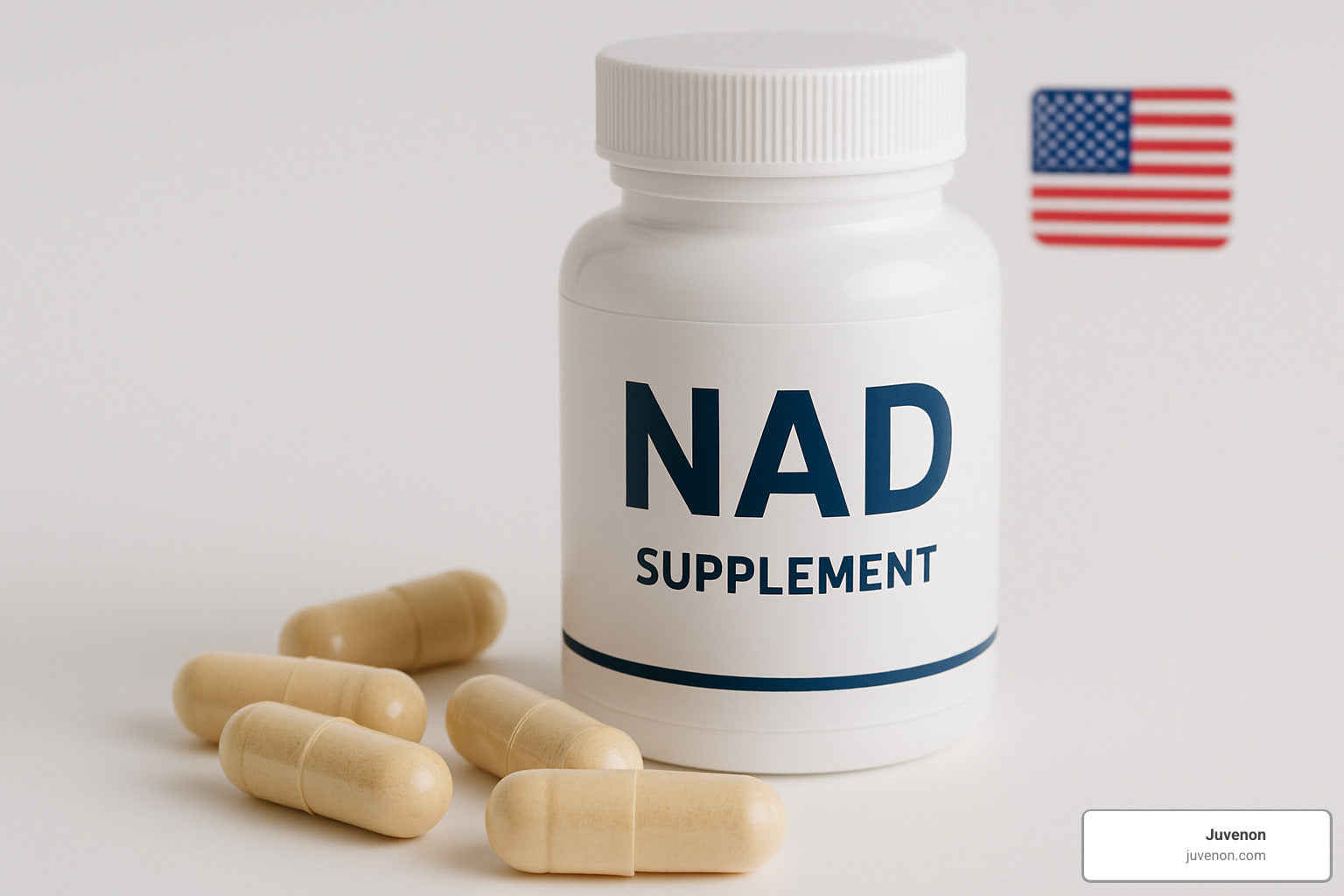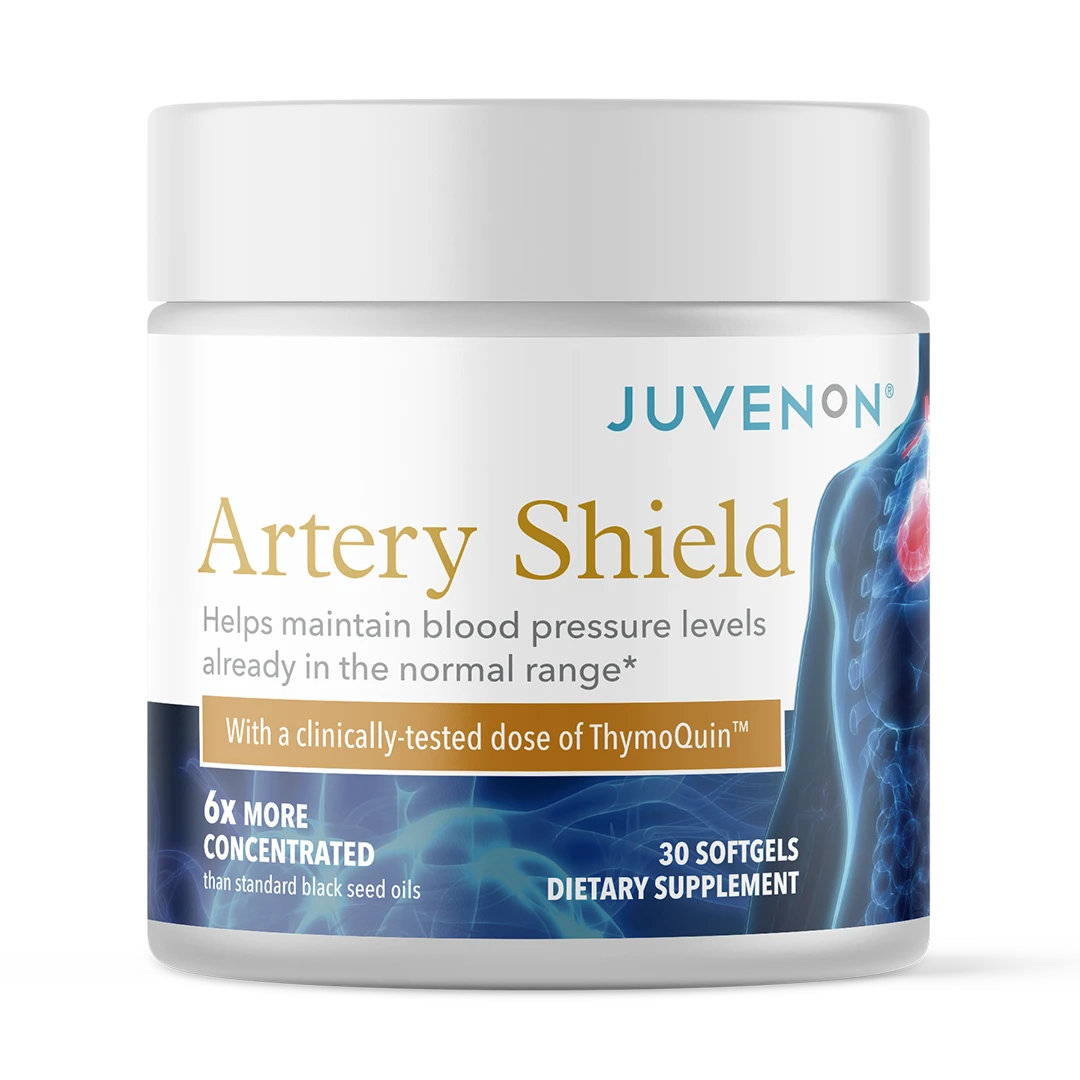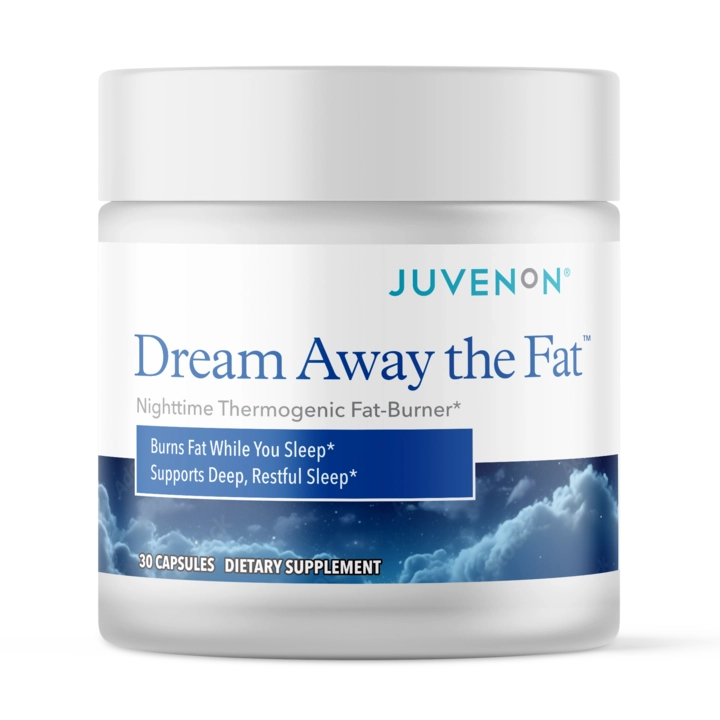Finding Your Sweet Spot: An Introduction to Blood Sugar Balance
Maintaining healthy blood sugar is key to overall wellness. Many people seek the best supplements for blood sugar balance to support their health goals. While diet and lifestyle are primary, certain supplements show promise.
Here are some of the top supplements with scientific evidence for blood sugar support:
- Cinnamon: May help lower fasting blood sugar levels.
- Berberine: Can improve insulin sensitivity and glucose uptake.
- Chromium: Plays a role in enhancing insulin action.
- Magnesium: Linked to better insulin sensitivity.
- Alpha-Lipoic Acid (ALA): A powerful antioxidant with potential benefits.
- Vitamin D: Important for pancreatic cell function and insulin response.
Understanding how to best approach blood sugar management can feel overwhelming. This guide will help you sort through the options. We'll look at what the science says and how to make smart choices.
I'm Michelle M. Henson. As a copywriting leader and legal compliance editor for healthy aging supplements, I've spent over two decades crafting content. This work has given me a deep understanding of the best supplements for blood sugar balance and how they fit into a holistic health plan.

Glossary for best supplements for blood sugar balance:
The Foundation: Why Lifestyle and Whole Foods Come First
Let me share something that might surprise you: even the best supplements for blood sugar balance can't compete with a good walk and a balanced meal. I know that's not what you came here to read about, but it's the truth we need to start with.
Your diet is your most powerful tool for managing blood sugar. When you choose whole foods over processed ones, you're giving your body exactly what it needs to handle glucose naturally. Think of fiber as your blood sugar's best friend - it slows down sugar absorption like a gentle brake pedal rather than a sudden stop.
Foods like leafy greens, beans, and whole grains don't just fill you up. They create a steady, controlled release of energy that keeps your blood sugar from riding a roller coaster all day long.
Physical activity works like magic for blood sugar control. Even a 15-minute stroll after dinner can dramatically improve how your body handles the meal you just ate. Your muscles become hungry for glucose during exercise, soaking it up like a sponge and keeping it from lingering in your bloodstream.
Here's where whole foods really shine: nutrient synergy. An orange doesn't just contain vitamin C - it has fiber, flavonoids, and dozens of other compounds that work together in ways scientists are still finding. This teamwork is nearly impossible to recreate in a supplement bottle.
The research backs this up beautifully. Lifestyle changes for diabetes prevention have been shown to reduce diabetes risk by an impressive 58% in major studies. That's more effective than any supplement we've studied.
Don't get me wrong - I'm not here to talk you out of supplements entirely. But they work best when you've already built a solid foundation with good food choices and regular movement. Think of supplements as the finishing touch on a house, not the foundation itself.
Navigating the World of Supplements: Safety and Smart Choices

Let's talk about something that might surprise you: the supplement aisle isn't as straightforward as it seems. Unlike your prescription medications, supplements aren't regulated by the FDA in the same rigorous way. This means what's on the label might not always match what's in the bottle.
I've seen everything from mislabeled products to supplements containing mystery ingredients. It's not meant to scare you, but rather to arm you with knowledge. When you're looking for the best supplements for blood sugar balance, quality matters more than flashy marketing claims.
Your best friend in this journey is the United States Pharmacopeia (USP) seal. Think of it as a quality stamp of approval from an independent watchdog. When you see this seal, you know the product has been tested for purity, potency, and overall quality. It's like having a trusted expert peek inside every bottle for you.
Here's where things get serious: potential risks and side effects are real concerns. Some supplements can interact with your medications in unexpected ways. For example, if you're taking diabetes medication and add berberine, you might end up with blood sugar that's too low. High doses of cinnamon can affect your liver function over time.
The American Diabetes Association and National Center for Complementary and Integrative Health both emphasize an important point: supplements should complement, never replace, proven diabetes treatments. They're the supporting cast, not the lead actor in your health story.
This is why consulting your healthcare provider before starting any new supplement is crucial. Your doctor knows your medical history, current medications, and can spot potential interactions before they become problems. It's not about being overly cautious - it's about being smart.
Understanding why supplements are not FDA-regulated helps you make informed decisions. The general consensus from health organizations is clear: supplements work best as part of a comprehensive approach that includes proper nutrition, regular exercise, and medical supervision.
Knowledge is your best tool for navigating this world safely and effectively.
The 6 Best Supplements for Blood Sugar Balance: A Science-Backed List

After sifting through hundreds of studies and countless supplement claims, I've found six supplements that actually have solid science behind them. These aren't magic bullets - they're tools that can support your blood sugar goals when used thoughtfully.
What makes these best supplements for blood sugar balance special is how they work. Some help your cells respond better to insulin, others slow down sugar absorption, and a few support the cellular machinery that processes glucose. The key is understanding that supplements work as part of a team, not as solo performers.
These are complementary approaches. They're meant to work alongside your healthy eating and lifestyle habits, not replace them. Results take time - we're talking weeks to months, not days.
Cinnamon: The Familiar Spice with Potential
Your spice rack might hold more power than you realize. That humble jar of cinnamon has caught the attention of researchers worldwide, and for good reason. A comprehensive 2019 review examining 18 studies found that cinnamon significantly reduced fasting blood sugar by an average of 19.26 mg/dL in people with type 2 diabetes.
The magic happens because cinnamon appears to improve insulin sensitivity - essentially helping your cells become better listeners when insulin comes knocking. It's like giving your metabolism a gentle wake-up call.
But here's where it gets interesting: not all cinnamon is created equal. The common Cassia cinnamon you'll find in most grocery stores contains coumarin, a compound that can be hard on your liver in large amounts. Ceylon cinnamon, sometimes called "true cinnamon," has much lower coumarin levels and is generally safer for regular use.
The effective dosage in studies ranges from 1-6 grams daily - that's roughly half a teaspoon to 2.5 teaspoons. That's quite a bit more than you'd sprinkle on your morning oatmeal, which is where supplementation might make sense.
When choosing a cinnamon supplement, look for products that specify Ceylon cinnamon or are tested for coumarin content. Meta-analysis on cinnamon's efficacy provides detailed evidence, though researchers note we need more long-term studies.
Berberine: The "Metabolic Master Switch"
If supplements had superpowers, berberine would be the metabolic master switch. This bright yellow compound, extracted from plants like goldenseal and Oregon grape, has earned quite a reputation in the research world.
Berberine works by flipping on AMPK (adenosine monophosphate-activated protein kinase), an enzyme that acts like your body's metabolic control center. When AMPK gets activated, it helps cells absorb glucose more efficiently and improves insulin sensitivity. It's like upgrading your cellular software.
A 2022 review of 46 berberine studies involving over 4,000 participants showed impressive results. Some studies found berberine could reduce fasting blood sugar by about 20% and improve A1c levels by an average of 0.32%. Those are numbers that get attention.
The typical approach is 500mg taken 2-3 times daily with meals. Starting with a lower dose helps your digestive system adjust, because berberine's main complaint is stomach upset. About 10-15% of users experience diarrhea, constipation, or stomach discomfort initially.
What's reassuring is that berberine doesn't typically cause dangerously low blood sugar when used alone. However, it can improve the effects of diabetes medications, so medical supervision is essential. Systematic review of berberine for diabetes provides comprehensive evidence for its metabolic benefits.
Chromium: A Key Trace Mineral for Glucose Metabolism
Chromium is like insulin's helpful assistant - when it's around, insulin can do its job more effectively. This trace mineral helps insulin work better, essentially making the whole glucose management system run more smoothly.
The most studied form is chromium picolinate, which your body absorbs better than other forms. A 2022 review of 16 chromium trials involving 868 participants suggested improvements in HbA1c and fasting glucose, though results have been mixed across different studies.
You can find chromium in foods like broccoli, shellfish, whole grains, and grape juice. But here's the challenge - chromium absorption is notoriously poor. Only about 1.5-2.5% of what you consume actually gets absorbed, with the rest being eliminated.
The typical supplemental dosage ranges from 200-1000 mcg daily. Many people start at 500 mcg and adjust based on results. That antacids can interfere with chromium absorption, so timing matters if you take both.
Chromium deficiency is more common than many people realize, especially among those with diabetes. This could explain why some people see dramatic improvements with supplementation while others notice little change. Fact sheet on Chromium's role from the National Institutes of Health provides authoritative information on this important mineral.
Magnesium: The Unsung Hero for Insulin Sensitivity
Here's something that might surprise you: magnesium deficiency is surprisingly common in people with type 2 diabetes, and low magnesium levels are directly linked to insulin resistance. It's like trying to start a car with a weak battery - everything struggles to work properly.
Magnesium plays crucial roles in over 300 enzymatic reactions, including those involved in glucose metabolism. It helps insulin bind to cell receptors and assists in glucose transport into cells. When magnesium runs low, this entire system becomes sluggish.
Studies involving over 1 million participants have linked higher magnesium intake to lower diabetes risk. One clinical trial found that type 2 diabetes patients taking 300 mg magnesium sulfate daily saw a 32% drop in fasting glucose. That's significant.
The best food sources include pumpkin seeds, almonds, spinach, and dark chocolate (yes, chocolate made the list!). However, soil depletion and food processing have reduced magnesium content in many foods over the past century.
For supplements, magnesium glycinate and magnesium L-threonate are generally better tolerated than magnesium oxide, which can cause digestive upset. The upper limit for supplemental magnesium is 350 mg daily for adults - higher doses can cause diarrhea.
Magnesium supplement safety information helps you understand proper dosing and potential interactions.
Alpha-Lipoic Acid (ALA): The Potent Antioxidant
Alpha-lipoic acid earns the title "universal antioxidant" because it works in both water and fat-soluble environments throughout your body. This unique property allows it to protect cells from oxidative stress, which tends to be liftd in people with diabetes.
While ALA has shown promise for diabetic neuropathy (nerve damage), its effects on blood sugar control are more modest. A 2019 review of 10 studies with 553 participants found that alpha-lipoic acid performed no better than placebo at reducing blood sugar, cholesterol, or triglycerides.
However, some individual studies have shown benefits. ALA may help improve insulin sensitivity and reduce inflammation, which could indirectly support blood sugar control. The typical dosage ranges from 600-1200 mg daily.
ALA supplementation may require a few months to show effects on fasting blood sugar and A1c. It's also worth noting that ALA can potentially interact with thyroid medications, so medical supervision is important.
While ALA might not be the strongest player for blood sugar control specifically, its antioxidant properties could provide broader health benefits for people managing diabetes. Safety evaluation of ALA supplementation provides detailed information on proper use and potential interactions.
Vitamin D: The Sunshine Vitamin's Link to Diabetes Risk
The connection between vitamin D and diabetes risk is truly fascinating. Vitamin D receptors are found in pancreatic cells, and this vitamin appears to play important roles in both insulin production and sensitivity.
Research shows that individuals with the highest vitamin D status (>25 ng/ml) have a 43% lower risk of developing type 2 diabetes compared to those in the lowest group (<14 ng/ml). That's a significant difference that deserves attention.
A 2020 review of 9 studies with 43,559 participants found that vitamin D supplementation at moderate-to-high doses (at least 1,000 IU daily) significantly reduced the risk of type 2 diabetes in people with prediabetes.
For people with existing diabetes, a 2017 review and meta-analysis of 29 trials found a modest reduction in A1c (decreased by 0.32% on average) with vitamin D supplementation.
The key is knowing your vitamin D blood level. Many people are deficient, especially those living in northern climates or spending most of their time indoors. A simple blood test can determine if you need supplementation.
Dosage typically starts at 1,000 IU daily, but some people need higher amounts to achieve optimal blood levels. Since vitamin D is fat-soluble, it's best absorbed when taken with meals containing healthy fats.
Vitamin D and diabetes risk research provides compelling evidence for this important connection.
Other Promising Supplements and Those Lacking Evidence

Not all supplements are created equal. While we've covered the heavy hitters, several others show promise or have been overhyped without sufficient evidence.
Supplements with Emerging Evidence:
Probiotics are generating excitement in the blood sugar world. A 2015 meta-analysis showed an average A1c reduction of 0.81% with probiotic supplementation, and a 2016 review found significant reductions in fasting blood glucose. The theory is that gut bacteria influence how we process carbohydrates, and restoring balance could improve metabolic health.
Omega-3 fatty acids have mixed results. A 2022 review of 30 studies with 2,459 participants found that 70% showed at least one significant positive effect on diabetes-related measures. However, the benefits seem more related to inflammation and heart health than direct blood sugar control.
Folate supplementation showed promise in a 2019 meta-analysis, decreasing A1c by 0.46% on average. This B-vitamin plays roles in cellular metabolism that could indirectly support glucose control.
Supplements with Weak Evidence:
Selenium, ginseng, and fenugreek are often marketed for blood sugar support, but the evidence is inconsistent or limited. Some studies show benefits, others show no effect, and many have methodological flaws.
Gymnema sylvestre, bitter melon, and milk thistle fall into this category too. While they have traditional uses and some preliminary research, we don't have enough robust clinical trials to recommend them confidently.
The key lesson? Stick with supplements that have multiple high-quality studies showing consistent benefits. Don't get swayed by marketing claims or isolated positive studies.
Frequently Asked Questions about Supplements for Blood Sugar
Can supplements replace my diabetes medication?
This is the most important question we can answer, and the answer is a firm no. We understand the appeal of natural solutions, but supplements should never replace proven diabetes medications.
The ADA Standards of Care makes this crystal clear: supplements aren't proven as effective options for lowering blood sugar unless you have an underlying nutrient deficiency. Your diabetes medication has undergone years of rigorous testing and has established safety profiles that supplements simply don't have.
Think of the best supplements for blood sugar balance as your supporting cast, not the star of the show. They work alongside your prescribed treatment, potentially providing additional benefits when combined with proper medical care.
Even if you notice improvements in your blood sugar while taking supplements, this doesn't mean you should adjust your medication on your own. Changes to your diabetes treatment plan should always happen under medical supervision. Stopping or reducing medication without guidance can lead to dangerous blood sugar swings.
We've seen too many people get into trouble by thinking supplements alone could handle their diabetes management. Your healthcare provider is your best ally in creating a comprehensive approach that safely combines proven treatments with supportive supplements.
How long does it take to see results from the best supplements for blood sugar balance?
Here's where patience becomes your best friend. Unlike prescription medications that often work within hours or days, supplements typically need weeks to months to show meaningful effects.
For most of the best supplements for blood sugar balance, you're looking at different timelines. Cinnamon usually needs at least 20 days of consistent use before you might notice changes. Berberine is more of a marathon runner - it often takes 3 months or more to see its full effects on blood sugar control.
Chromium and magnesium fall somewhere in between, typically requiring 4-16 weeks of regular use. Alpha-lipoic acid and vitamin D are also patient players, often needing 2-3 months to show their benefits.
The key word here is consistent. Taking supplements sporadically won't give you the benefits seen in research studies, where participants took them daily for extended periods. It's like trying to get fit by going to the gym once a week - consistency matters more than intensity.
Your results also depend heavily on what else you're doing. Supplements work best when they're part of a comprehensive approach that includes healthy eating and regular physical activity. They're not magic bullets that work regardless of your lifestyle choices.
Are there any supplements I should definitely avoid for blood sugar control?
Absolutely, and we're glad you asked. The supplement world can feel like the Wild West sometimes, with products making outrageous claims and potentially dangerous ingredients lurking in bottles.
Steer clear of any supplement that promises to "cure diabetes" or makes miracle claims. Legitimate supplements provide modest, gradual improvements - not dramatic overnight changes. If something sounds too good to be true, it probably is.
Products with unlisted or mysterious "proprietary blends" are red flags. You deserve to know exactly what you're putting in your body and in what amounts. Quality supplement companies are transparent about their ingredients and dosages.
Be especially cautious with high-dose cinnamon supplements that don't specify whether they've been tested for coumarin content. As we mentioned earlier, too much coumarin can be hard on your liver.
The FDA has issued warnings about illegal diabetes products that contain undisclosed pharmaceutical ingredients. These can cause unpredictable and dangerous blood sugar changes. Any product that recommends stopping your prescribed medications should be avoided entirely.
Products sold through multi-level marketing schemes or that are significantly cheaper than similar supplements often indicate poor quality or questionable sourcing. When it comes to your health, bargain hunting isn't worth the risk.
Consulting with your healthcare provider before starting any new supplement is always the smartest move. They can help you steer potential interactions with your medications and ensure your supplement choices support your overall health goals.
Conclusion: Creating Your Holistic Blood Sugar Strategy
We've covered a lot of ground together, and I hope you're feeling more confident about navigating blood sugar support. The best supplements for blood sugar balance can absolutely be valuable allies in your health journey - but they shine brightest when they're part of a bigger picture.
Think of managing blood sugar like tending a garden. You wouldn't expect fertilizer alone to create a thriving garden without good soil, proper watering, and adequate sunlight. Similarly, supplements work best when planted in the fertile ground of healthy lifestyle choices.
Lifestyle truly is your foundation. No supplement can overcome the effects of processed foods, chronic stress, or a sedentary lifestyle. Focus on nourishing your body with whole foods, moving regularly, managing stress, and getting quality sleep. These aren't just nice-to-haves - they're the non-negotiables that make everything else work better.
When you do choose supplements, quality becomes paramount. Look for products with USP certification and third-party testing. Transparent labeling isn't just nice - it's essential for your safety. Your health deserves better than bargain-basement supplements with mystery ingredients.
Here's some practical advice: start with one supplement at a time. This allows you to truly assess its effects on your body and energy levels. It also helps you identify any side effects or interactions before they become problematic. Your body will thank you for this thoughtful approach.
Monitoring your progress makes all the difference. Keep track of your blood sugar levels, energy patterns, and overall well-being. This data becomes invaluable when working with your healthcare provider to fine-tune your approach.
The supplement landscape keeps evolving, so staying informed helps you make smart choices. What we understand today about blood sugar support continues to expand as research progresses.
Most importantly, work with healthcare professionals who understand your unique situation. They can help you steer potential interactions, adjust medications if needed, and monitor your overall health trajectory.
At Juvenon, we understand that managing blood sugar is a marathon, not a sprint. Small, consistent changes compound over time to create meaningful improvements in your health and quality of life. That's why we focus on scientifically-backed formulations with transparent labeling - because your wellness journey deserves that level of care and attention.
The sweet spot isn't about achieving perfection. It's about finding sustainable strategies that work for your unique lifestyle and health goals. Whether that includes supplements or not, the ultimate goal remains the same: supporting your body's natural ability to maintain healthy blood sugar levels for years to come.
Explore scientifically-backed supplements for healthy aging and find how the right approach can support your long-term health goals.







